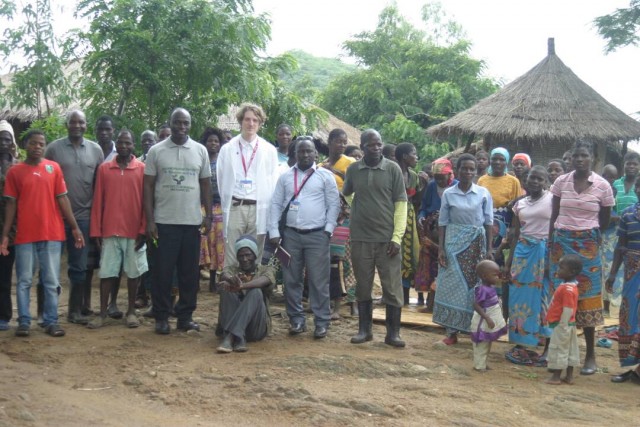
Being present and engaged: tools and training for researchers
27th March 2018
Dr Lucy Wallace
EfD Communications Manager | CSAT Programme Manager
Research inevitably means we spend an awful lot of time working in one small area. The mystical ‘bigger picture’ is relatively distant, it’s something we refer to in grant applications, and we often don’t know where to start to attain the coveted ‘research into policy and practice’. So how can you make that leap, how can you get from the spaces where research happens to spaces where research can make a real difference in the real world?
Making the link between research and practice is fundamental to the way EfD works: by being present and engaged. As it says in our brochure, ‘the right information, in the right hands, can change lives’, and we do that by finding new, more effective ways of making much-needed information about household income and livelihoods available and accessible to key decision makers. We do this so that policies to improve living standards and strengthen resilience among the poor are based on the best possible evidence, and we work with a range of people from a many different backgrounds and disciplines to achieve this. We are keenly aware that the skills needed to work in this way must be passed on to the next generation of researchers and practitioners.
I recently worked on a pilot training course, CSAT (Climate Services Academy and Training), with EfD and the Walker Institute, which aimed to pass on some of this knowledge. Specifically, it looked at evidence synthesis, and we received a grant from the Natural Environment Research Council (NERC) to do this. NERC had identified a skills gap in early career researchers (they wanted to specifically target PhD students at the point of submission) in the natural and environmental sciences: they felt that as a cohort, they were lacking the skills needed to synthesise information from across disciplines in a way that would be relevant to stakeholders, ranging from government officials to other professionals, and non-specialist users. We designed the course to be both instructive and immersive – making sure the students had the information they needed to work with stakeholders and synthesise information according to need and understanding, and then putting that to test in the real world by going on a placement in a government department in Ghana, Malawi, Senegal or Uganda. Importantly, we wanted to give them a wider view of how things work in practice, how the areas they work in interact with different ‘disciplines’ and sectors, and how to work with different people to make a real impact.
My role in this was as the Programme Manager, so included design, delivery and co-ordination. From EfD, Dr Celia Petty was involved in the design of the training programme, and specifically in terms of teaching, she took on the livelihoods element. We also bought in experts on development communications, on disaster management, on power and political economy and on knowledge exchange, giving all of these a climate focus. We spent the first week of the course equipping the students with the tools they might need to do this, followed by a week of real-life scenario-based practical activities from the four countries they would be visiting. When the students went on their placements, they extended the work they had done on these scenarios and applied the skills and tools they had learnt during the training.
We ran the course with a full-complement of 8 PhD students, from a range of science and social science backgrounds, all of whom felt they had benefited from the experience and said they would recommend CSAT to others. The impact that this training will be felt well into the future, as these students move forward and share their knowledge with others they interact with. I feel incredibly privileged to have been part of this journey with EfD and Walker, to work with these researchers at the start of their careers, and to enable them to develop both personally and professionally.
Categories: Capacity building, Climate change
Comments
No comments yet.
The comments are closed.